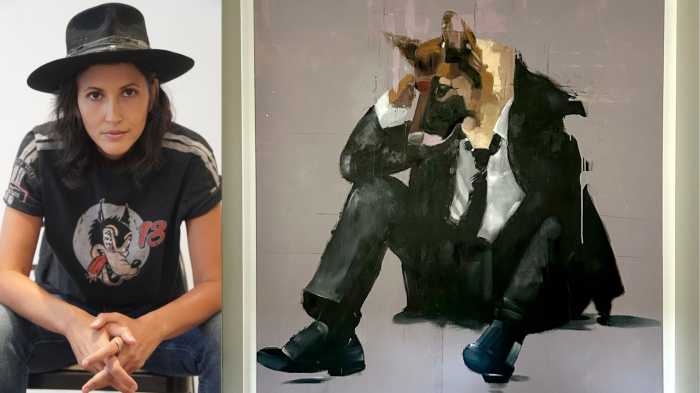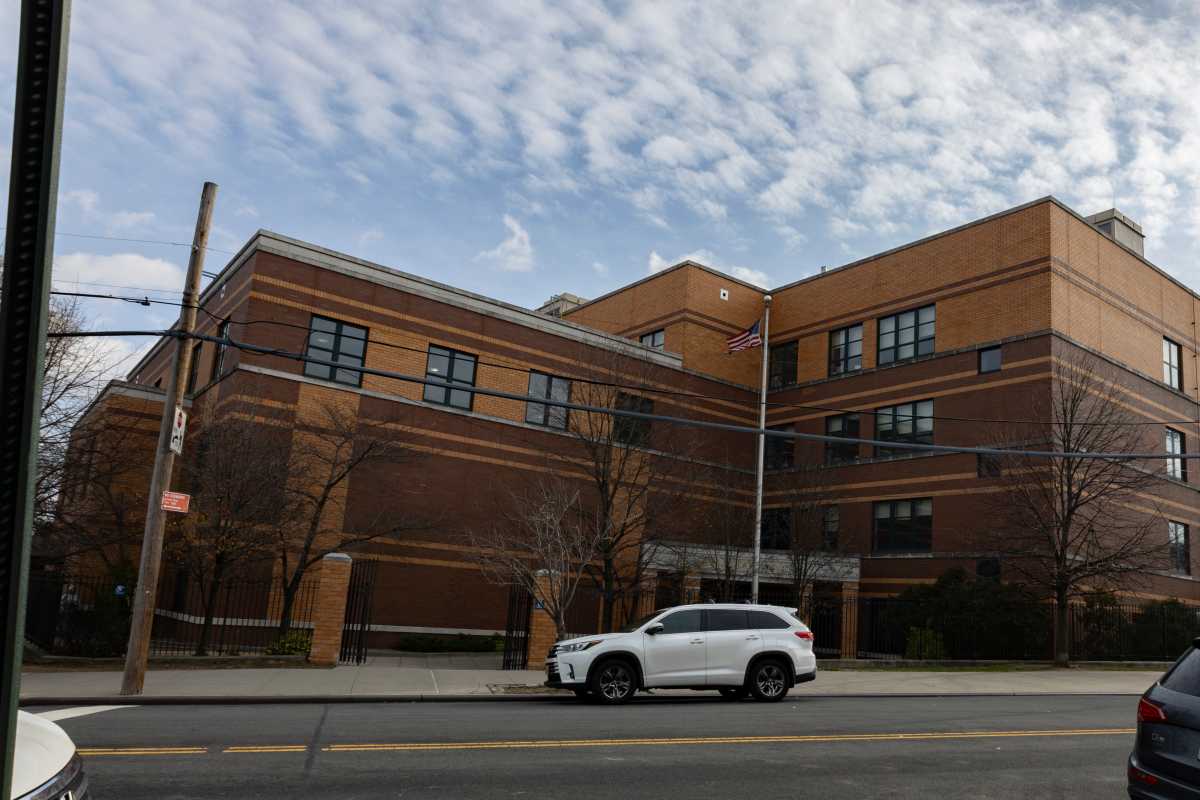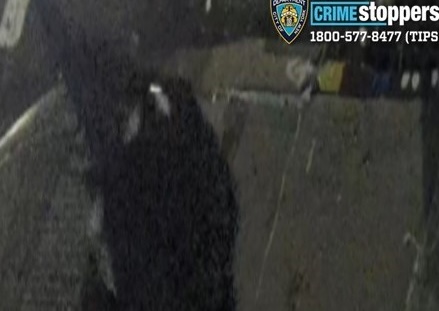By Marilyn Dorato and Kathryn Donaldson
During the last months of the Giuliani administration, and soon after Aubrey Lees — who currently chairs the Community Board 2 Parks Committee — was elected chairperson of Community Board 2, the Greenwich Village Block Associations discussed Lees’ appointments for chairpersons of two of the board’s important subcommittees: the Business Committee and the Sidewalks Committee. Bob Rinaolo, owner of The Garage restaurant and Senor Swanky, became chairperson of the Business Committee, which oversees liquor license applications and makes recommendations concerning them to the State Liquor Authority. It seems inappropriate for a liquor-license holder to chair a committee that oversees applications by people who may be competition. If this were not a conflict of interest, what is?
Lisa LaFrieda of the LaFrieda meatpacking family got the top spot on the Sidewalks Committee, which oversees sidewalk cafe applications. That some of the applicants appearing before this committee may have been her customers may have given the appearance of impropriety.
Since common sense is not necessarily consistent with “what is legal,” G.V.B.A. referred the question to the New York City Conflicts of Interest Board and awaited a ruling to see if our “instincts were correct.”
In May 2003 — two years later — G.V.B.A. received a ruling concerning only Rinaolo. C.O.I.B. determined that his appointment was, indeed, a conflict of interest. G.V.B.A. assumed that C.O.I.B. had sent this decision to newly elected C.B. 2 Chairperson Jim Smith and to the Manhattan Borough President’s office. To ensure that Smith was aware of the ruling, G.V.B.A. sent it to him by registered mail along with a congratulatory letter on his election.
We hoped for positive changes at Board 2: transparency in procedure and increased community inclusion. We also sent the ruling to Rinaolo, because it did, after all, concern him. To quote Smith’s e-mail response of July 22, 2003:
“I did read the advisory of the Conflicts of Interest Board you sent and the cover letter. I’m amazed that you would have been inquiring regarding Ms. LaFrieda whose business in no way involves a liquor license. As for Mr. Rinaolo, he is one of several licensees who chair liquor license committees in Manhattan. I know you agree with me that he is a superb chair and one I would not part with willingly. The civility, intelligence, even-handedness and savvy he brings, in short, his sophistication as a veteran Manhattan restaurateur, make him ideal for the portfolio he tends as Chair of our Business Committee.
“Fortunately, as I read it the C.O.I.B.’s opinion is merely advisory. Inquiries have been made of the Borough Presidents’s office for guidance and if it should be deemed in any way applicable to C.B. 2’s situation, then we will seek advice on how to appeal. Bob is one to keep, don’t you agree?”
Smith failed to grasp the concept of “conflict of interest” — it’s not just about liquor licenses — and intended to ignore C.O.I.B.’s opinion. Still, not wishing to cause embarrassment and remaining focused on the problem, G.V.B.A. trusted that Smith would discover he was wrong. Rinaolo might make a face-saving maneuver and step down. He did not.
This was baffling and disappointing. C.O.I.B. rulings are controlling, not advisory. If G.V.B.A. knew it, why didn’t the officers of C.B. 2? Ironically, the chairperson of a community board — which is, indeed, an advisory body — was opting to ignore the advice of what he erroneously assumed was another advisory body. Shouldn’t this be rudimentary knowledge for a community board chairperson?
In October 2003, a registered letter was sent to Denise Outram, legal counsel in the office of Manhattan Borough President C. Virginia Fields. G.V.B.A. asked Outram to offer the necessary counsel to Smith. We heard nothing from the Manhattan B.P.’s office. And Rinaolo stayed on as committee chairperson.
In the summer of 2004, we informed Wayne Hawley of C.O.I.B. what had transpired — more accurately, what had not transpired. Hawley assured us that the matter would be resolved, but again months passed. It seemed nothing was ever going to happen.
Eventually, the intrepid folks at The Villager got wind of the ruling — not from G.V.B.A. — and reported on it. That did the trick. After some confusion, conflicting statements and denials, Rinaolo stepped down. But a few months from now, if the Village scuttlebutt is accurate, he will be elected chairperson of Community Board 2.
There still remain questions including some of the “who knew what, when and why didn’t they act on it?” variety. And what should they have known if they didn’t? Why did C.O.I.B. take so long to respond to a simple legal query with citywide ramifications?
G.V.B.A. is reviewing our own judgment, too. We may have been too circumspect and too patient. A four-year-long “conflict of interest” is a circumvention of propriety and obviates a regulation essential to the credibility of any public body. Our community boards are advisory. Their influence depends solely on how wisely, honestly and efficiently they serve the community. If their advice can be ignored with impunity, it says as much about the board as it does about those on the receiving end of the advice.
Dorato is secretary and Donaldson is treasurer of the Greenwich Village Block Associations, an organization representing 35 block associations.






































